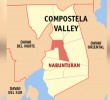Translations indeed extend original texts, as if giving them afterlives that seem familiar. But upon further scrutiny, imprecisions and deviations surface, concealing profound perceptions, or at times, revealing messages that the source text obscured. As anticipated in the preceding column article, I shall present and discuss a new Englishtranslation or rendition of Alejandro G. Abadilla’s poem, “Ako ang Daigdig,” different from ones found online that approximates ako as the pronoun i, ang daigdig as the world and translates the title as a thought expressed in the complete sentence: I am the world.
Concepts of the self and the universe have been elusive since the ancient times until here and now, as we tend to compartmentalize space as territories and perceive time as linear. To devise another way of seeing and to add another dimension to the source text, I regarded its fragments as variables and, by translation and substitution, suggest another reading.
“being the universe”
I.
being
the universe
being
the verse
being
the universe
the verse
being
the universe
of the verse
the verse
of the universe
being
the enduring being
the deathless being
the verse of the universe
II.
being
the universe of the verse
being
the verse of the universe
being
the sovereign being
true to itself
to the being of the universe
of the verse
being
the verse
in the universe
being
the universe
of the verse
be
III.
being
the sovereign
sympathy
being
the living
photograph
being
the endless
life
being
the sympathy
the photograph
the life
sympathy
photograph
life
verse
being
IV.
being
the universe
in the verse
being
the verse
in the universe
being
the universe
being
the verse
universe
verse
being
Suggested solutions (such as this) to problems of understanding selves, spaces, worlds, and universes generate more challenges. Words (even images) fail to transmit exact meaning, especially because every individual experiences words and worlds in different ways. For instance, people from disparate walks of life will have varying degrees of attention and appreciation of the recent “Dissident Vicinities”, an art exhibit curated by Lisa Ito, which features progressive artworks with their corresponding titles and captions. As noted in Teo Marasigan’s review at Kapirasong Kritika, Melvin Pollero’s chalk-on-taffeta piece, “Buhay-Gerilya” (Guerilla-Life) can easily be understood by spectators who haven’t imbibed the ideological biases of the ruling class.
If language is translated thought, and traduttore, traditore (an Italian adage often translated as traitor), then texts can only approximate our ideas, which shall be interpreted by others. For a better understanding of each other’s thoughts, our theories of the world shall be consolidated and coordinated in practice. Indigenous peoples serve as good examples. They set aside their historical and cultural differences by calling themselves “national minorities,” a collective term for indigenous peoples with a common cause: fighting for the right to self-determination and ancestral domain. Thus, this necessarily and inevitably pit them against imperialism, feudalism, bureaucrat capitalism and dogmatism of neoliberalism (if you cannot follow these isms, read up or feel free to ask them so we’ll be on the same page).
Since time immemorial, colonizers and their local henchmen have been maneuvering divide-and-conquer tactics, maximizing the antagonistic narratives, and coopting traditional worldviews of natives, for imperial interests. But delegates of Lakbayan 2017 know better. They are now hosted at the Kampuhan (camp) sites of the University of the Philippines – Diliman, so, we city-dwellers, who are somewhat homogenized by (neo)colonialism, can learn from them, join their struggle and participate, as if their fight is also our own.
Allow me to conclude this column with a rendition of another derivative work, titled “Tayo Ang Rebolusyon,” found in the zine Project 150 (2015) by China De Vera and Paul Belisario. In the source text, collective pronoun tayo (inclusive we) takes the place of the personal pronoun ako while revolution takes over daigdig. Consistent with my process in translating “tokhang ang daigdig” to “tokhang the universe,” I refused to use the present simple tense of the verb be (am, is, are). Initially, I considered using the objective form, us, but later, opted for the subjective we then settled for people. Therefore, instead of “We Are The Revolution” or “Us The Revolution,” I opted to go with “people the revolution,” thus:
I.
people
the revolution
people
the epic
people
the revolution
the epic
people
the revolution
of the epic
the epic
of the revolution
people
the enduring people
the perpetual people
the epic of the revolution
II.
people
the revolution of the epic
people
the epic of the revolution
people
the sovereign people
true to ourselves
to the people of the revolution
of the epic
people
the epic
in the revolution
people
the revolution
of the epic
people
III.
people
the sovereign
sympathy
people
the living
image
people
the endless
spirit
people
the sympathy
the image
the spirit
sympathy
image
spirit
epic
people
IV.
people
the revolution
in the epic
people
the epic
in the revolution
people
the revolution
people
the epic
revolution
epic
people










